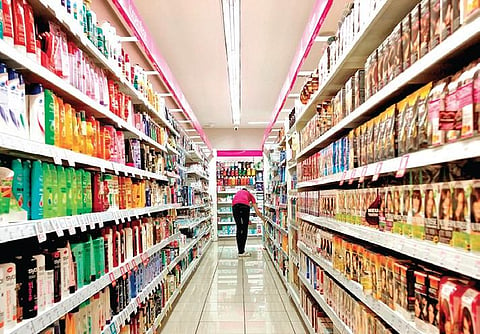

NEW DELHI: Fast-moving consumer goods majors Hindustan Unilever and Marico expect their business growth to remain in the slow lane for the next two quarters with a subdued consumption environment persisting for longer than expected.
“We expect top-line growth to be slow over the next two quarters. We, however, believe the worst in terms of volumes is probably behind,” Saugata Gupta, MD & CEO of Marico, told analysts on a conference call. The maker of Parachute coconut oil and Saffola edible oil is fighting hard to soften the blow from a slump in rural consumption as rural sales contribute a sizeable portion of its overall sales.
Gupta pointed out that the company is redirecting money towards consumer pricing, investing towards upgrading distribution infrastructure in general trade and expanding reach in rural markets to revive growth.
Hindustan Unilever Limited (HUL) is also expected to see a “slow” growth because of the rural slump amid a broader economic slowdown, said HUL chief financial officer Graeme Pitkethly. In India, which accounts for 9 per cent of Unilever’s overall sales, the company said it could increase price of soaps by 5-6 per cent during the March quarter despite a weak demand scenario, to offset the impact of increasing cost of raw materials.
According to market research firm Nielsen, the FMCG sector grew 6.6 per cent in the December quarter, compared to 15.7 per cent growth a year ago. Analysts warn that consumption lacks meaningful catalysts to spark a revival in calendar 2020. “A sustainable recovery in rural income growth and a sharp up-tick in consumer sentiment index are necessary for recovery.
But, there is a lack of meaningful catalysts for consumption to recover to its potential,” Kunal Vora, an analyst at BNP Paribas Securities India, wrote in a note. The brokerage also turned negative on the consumer goods sector, saying that lower raw material prices and tax cuts were masking underlying weakness in sales. The only bright spot is that private final consumption expenditure, a measure that reflects consumption spending of households, improved marginally at 5.9 per cent in Q3. “...it was, however, not sufficient to stem the slide,” noted Prithviraj Srinivas, chief economist, Axis Capital.